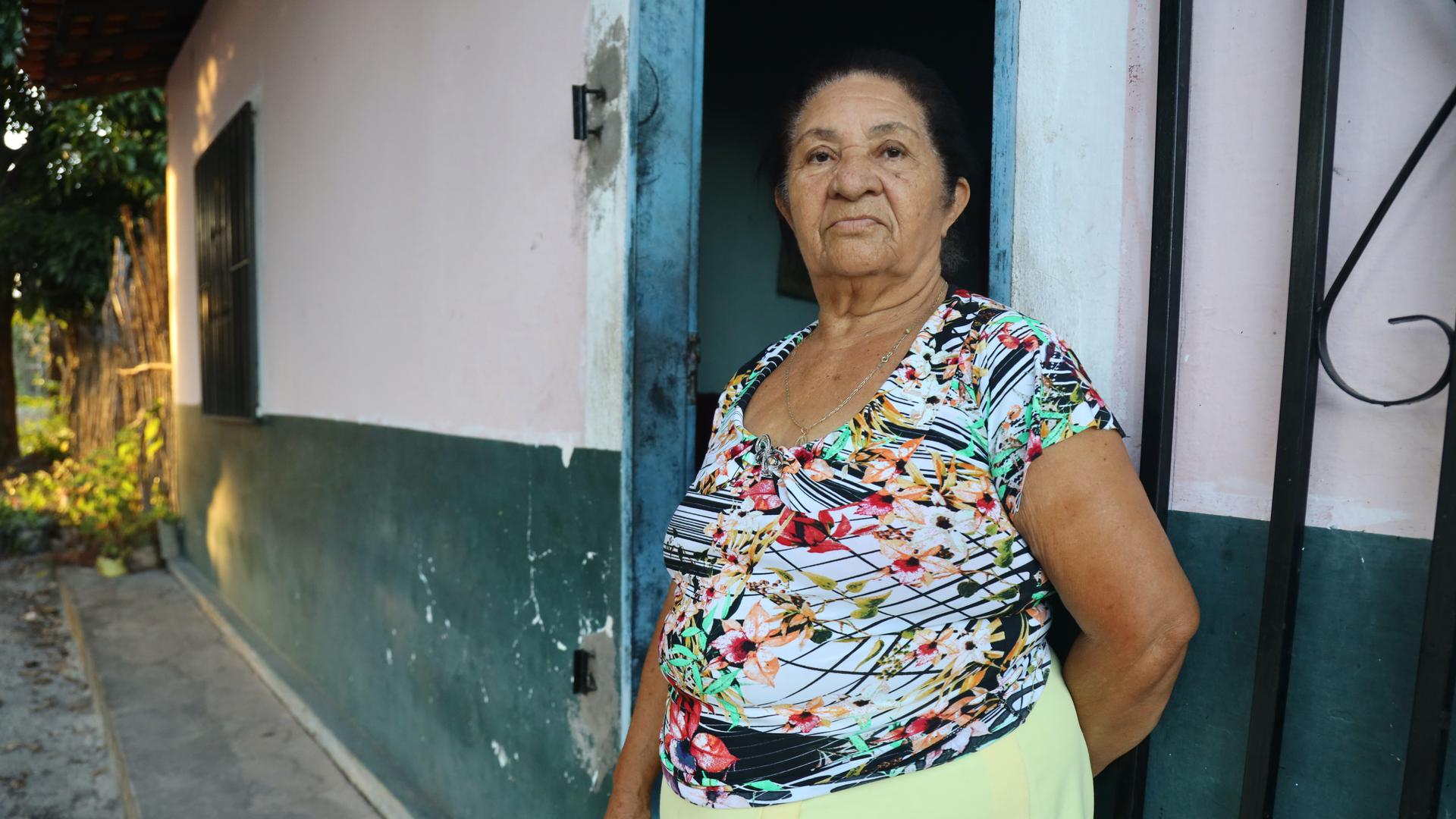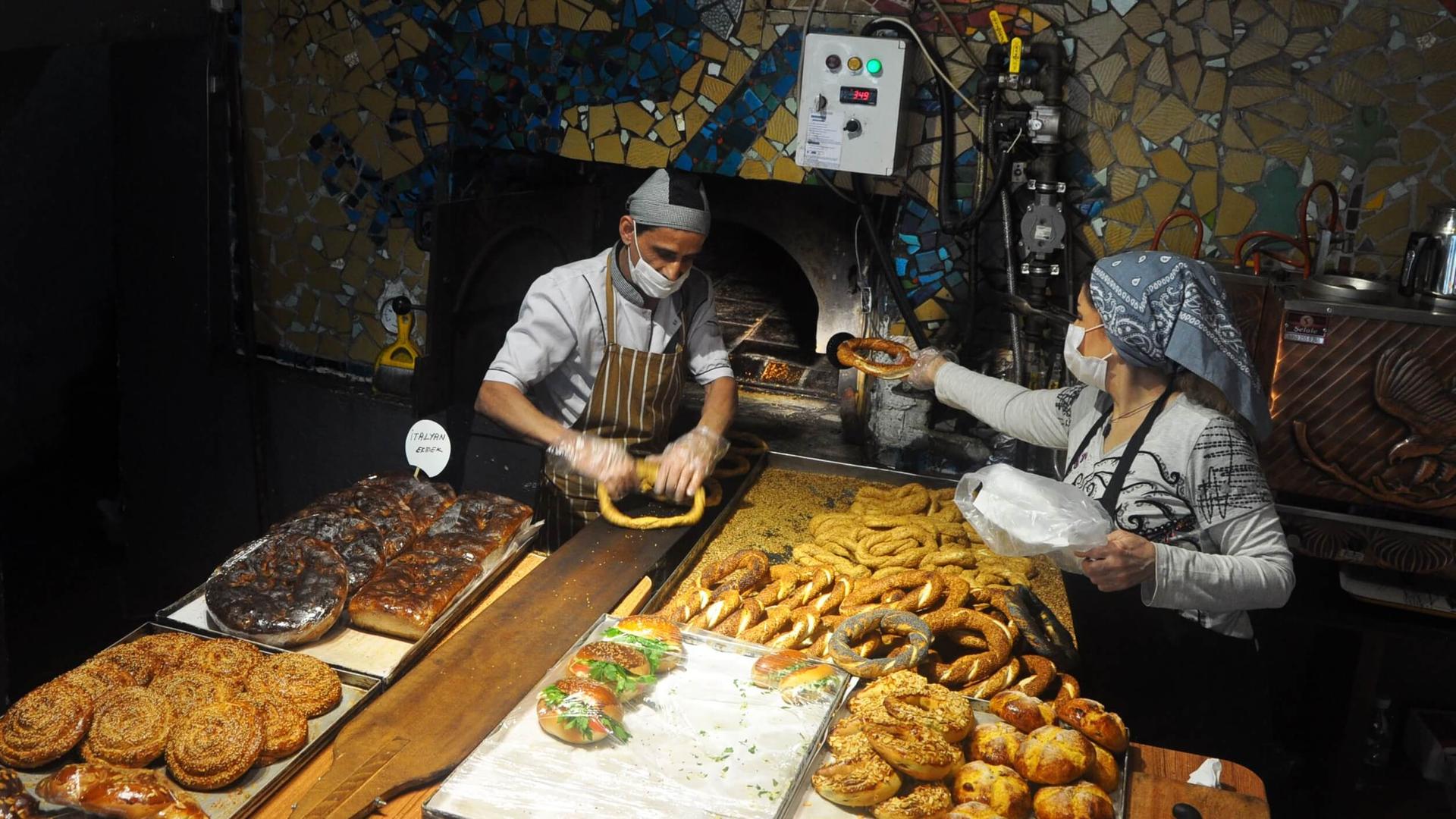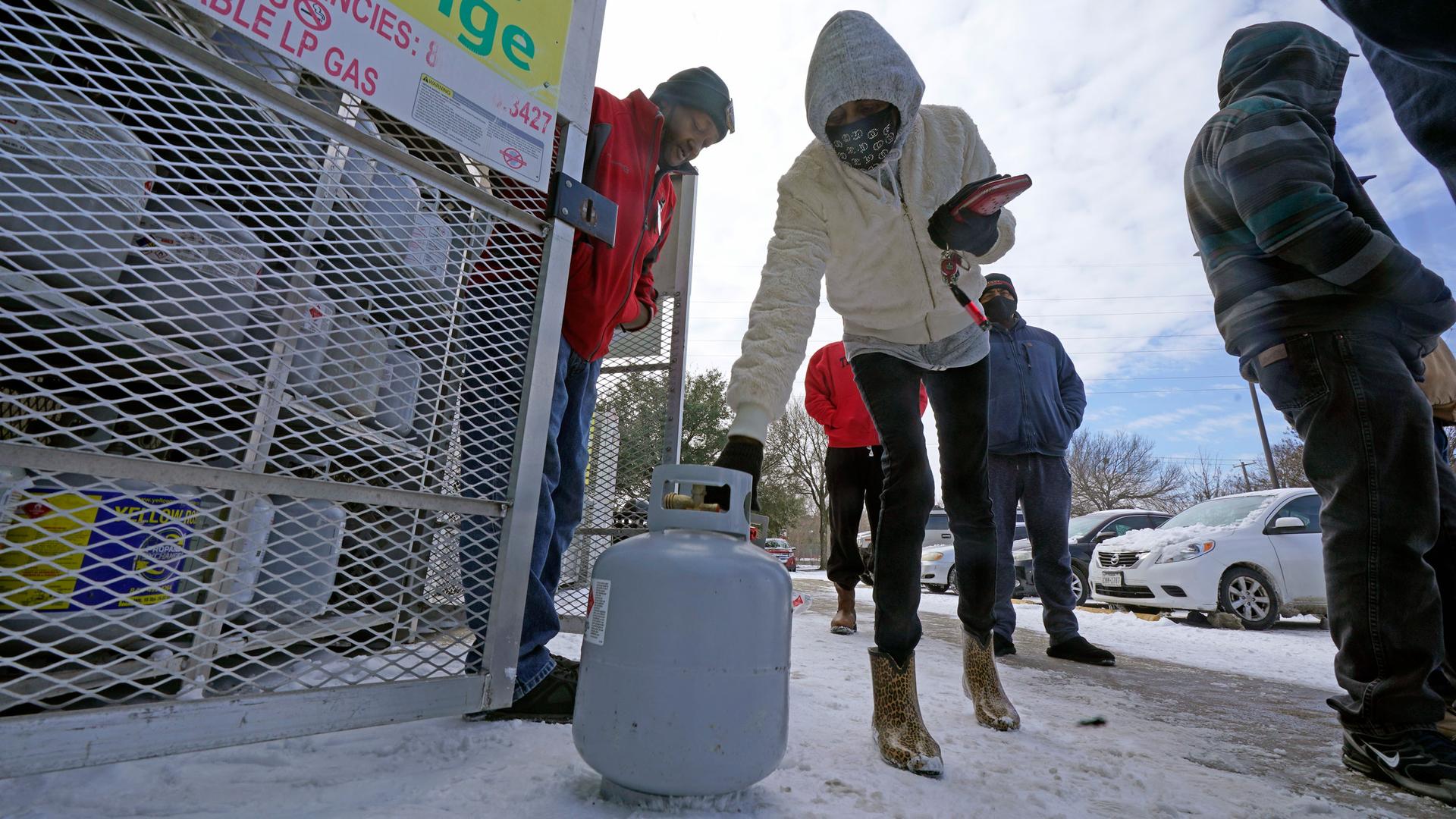Freezing temps wreak havoc on utilities in US and Mexico
Christine Chapman, center, sets down an empty canister to exchange for a full propane tank outside a grocery store, Feb. 16, 2021, in Dallas, Texas.
Top of The World — our morning news roundup written by editors at The World. Subscribe here.
The polar vortex, a swirling mass of cold air that usually spins around the Arctic, is wreaking havoc across areas of Mexico and the US. It’s overwhelming power grids and leaving more than 100 million people in the US under some type of winter weather warning on Wednesday.
The record-breaking winter temperatures, part of a pattern of extreme weather caused by climate change, have left people from Minnesota to Mississippi to northern Mexico with rolling blackouts to ease the burden on strained utilities. Mexico gets as much as 60% of its power from cheap natural gas via pipelines in Texas that have now been shut off.
And the polar vortex is not just causing usually cold temps in North America. On the other side of the Atlantic, people have been out skating on Amsterdam’s frozen canals. The once-in-a-decade snowfall in Athens led to the creation of a snowman near the Pantheon while kids played in the snow in the streets.
“There are lots of factors that drive winter weather, but it does look like the warming of our planet is one of them,” reporter Carolyn Beeler told The World’s Marco Werman.
Beeler suggested the science of why the polar vortex gets disrupted isn’t settled. “It’s always hard to prove cause and effect,” she said. “There is evidence to suggest that warming is making the jet stream more wavy … more likely to get that cold air [to] escape down south.”
What The World is following
Peruvian prosecutors are investigating the use of “courtesy doses” of China’s Sinopharm, which were used to vaccinate top government officials, including former President Martín Vizcarra, before the vaccine was approved by regulatory agencies in Peru. The scandal has involved more than 480 public officials and has led to the some resignations. Vizcarra, who was ousted by Congress in November last year over corruption allegations, said he did not jump the vaccine line but got it as part of a trial. This has been denied by trial managers at a Peruvian research institution.
And, Wednesday marked the 10th anniversary of the Libya uprising that led to the overthrow and killing of longtime ruler Muammar Gaddafi. Libya has become one of the most intractable conflicts in the region, along with Yemen and Syria. Many though, hope an interim government tasked with taking Libya through elections later this year can lead to a unified nation.
From The World
Hundreds of Black families in Brazil could be evicted to make way for space base expansion

In the early 1980s, in the final years of Brazil’s military dictatorship, hundreds of Black families were removed from their land to make way for the construction of the Alcântara Satellite Launch Center.
Today, hundreds more could be evicted to make way for the launch site’s expansion as part of a 2019 agreement between Brazil and the United States. The treaty grants the US permission to launch nonmilitary and commercial rockets from Alcântara.
New novel offers a window into Turkey’s insular Rum community

Nektaria Anastasiadou’s “A Recipe for Daphne” passes as a light, escapist novel with a love story. But the author hopes her book offers a window into Istanbul’s insular Rum community — a group of only a few thousand people in Turkey who still trace their ancestry back to the Byzantine Empire.
Bright spot
Experts at Cambridge University’s Botanic Garden in the UK are waiting for a rare cactus to bloom — and they have set up a livestream for all of us to see it. The white nocturnal bloom of the moonflower cactus, which produces a sweet fragrance, is expected to open around 9 p.m. GMT in the next few days. The blossom dies by the time the sun rises the following day so keep your eyes on the livestream.
In case you missed it
Listen: France’s Marine Le Pen attempts to remake her image

Politician Marine Le Pen is the face of the far-right in France. But, for the past few years, she’s been trying to remake her image and recast her National Rally party away from its extremist roots. And, a resistance is taking root after more than two weeks since Myanmar’s military detained elected officials and seized total power in a coup. Also, for many Polish Americans, Fat Tuesday goes by another name — Paczki Day.
Don’t forget to subscribe to The World’s Latest Edition podcast using your favorite podcast player: RadioPublic, Apple Podcasts, Stitcher, Soundcloud, RSS.
